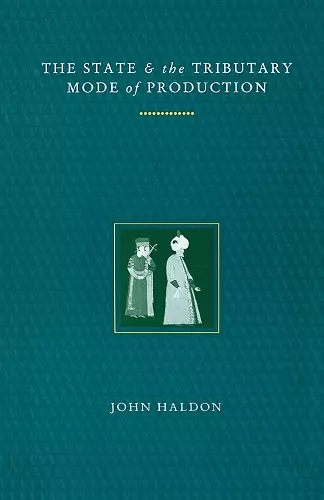The State and the Tributary Mode of Production
Format:Paperback
Publisher:Verso Books
Published:17th Mar '94
Currently unavailable, and unfortunately no date known when it will be back

A new interpretation of feudalism and other pre-capitalist frameworks
In this critique of both traditional and Marxist notions of feudalism and of the pre-capitalist state, John Haldon considers the configuration of state and social relations in medieval Europe and Mughal India, as well as in Byzantium and the Ottoman Empire.In this groundbreaking critique of both traditional and Marxist notions of feudalism and of the pre-capitalist state, John Haldon considers the configuration of state and social relations in medieval Europe and Mughal India as well as in Byzantium and the Ottoman Empire. He argues that a Marxist reading of the pre-capitalist state can take account of the autonomy of power relations and avoid economic reductionism while still focusing on the forms of tribute which sustained the ruling power. Haldon explores the conflicts to which these gave rise and shows the Ottoman state elite, often held to be a clear example of independence from underlying social relations, to be deeply enmeshed in economic relationships and the extraction of tribute.
Haldon argues that feudalism was the specifically European form of a much more widely diffused tributary mode, whose characteristic social relations and structural constraints can be seen at work in the Byzantine, Ottoman and Mughal empires as well. While acknowledging the range of ideological and cultural variation within and between these examples of the tributary mode, Haldon denies the thesis that such "superstructural" variations themselves yielded fundamentally contrasting social relations.
A powerful new challenge to recent major works of historical sociology by Michael Mann and W.G. Runciman, which aims to reinstate Marxist theory as the basis for a productive, specifically historical, synthesis. -- Chris Wickham
ISBN: 9780860916611
Dimensions: 216mm x 137mm x 18mm
Weight: 445g
350 pages